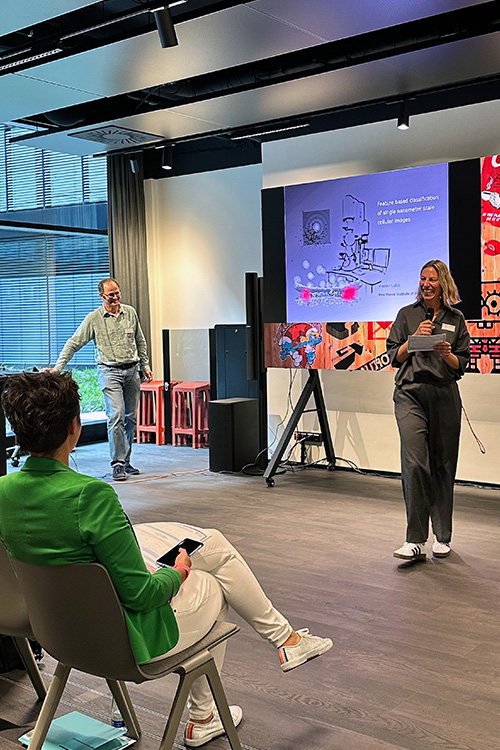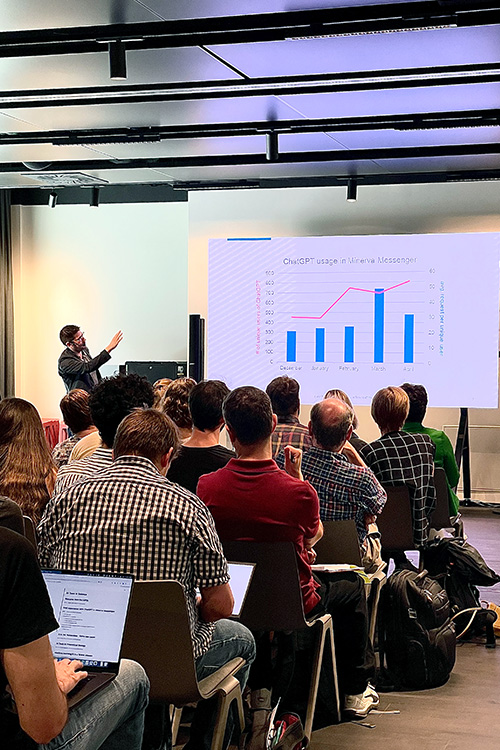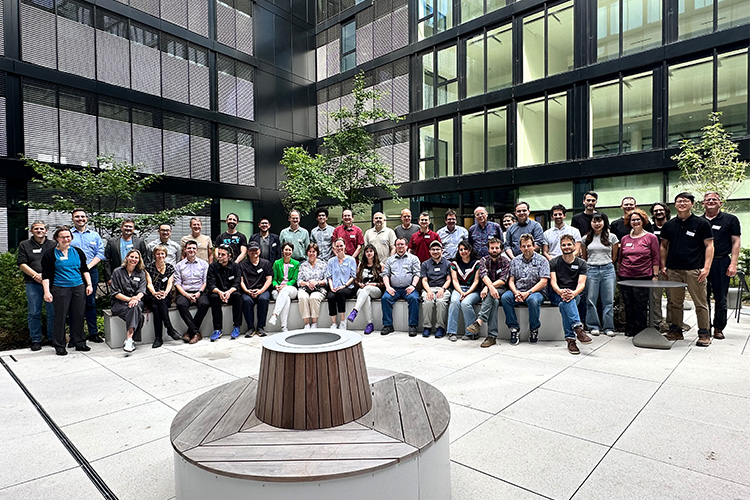June 17-18, 2024 | Munich: Over 50 Max Planck researchers from more than 20 Max Planck Institutes have met at the MPDL in Munich to discuss a broad range of AI-related topics regarding using AI tools in research.
In addition to researchers and support staff, the meet-up also counted the participation of representatives from the GWDG and the MPCDF, which, together with the MPDL, provide different AI services for the MPG.

The objective of the meet-up was to create an instance of exchange and sharing of know-how of tools or processes that incorporate AI to accelerate research.
Researchers valued the opportunity to connect with other fellow Max Planck researchers who are early adopters of AI- tools in the context of research. A common worry researchers share is the fast pace of development and the arrival of new tools almost on a weekly basis, which can quickly become overwhelming. The lack of training on how to use AI for research, including best practices, was another point voiced by participants. Another realization of the meet-up was that several AI services are already being offered in the MPG via the MPDL, the GWDG, and the MPCDF, but most participants needed to be made aware of them.

This was in contrast, for example, to the situation in the Fraunhofer Society, which developed a dedicated and centralized AI portal in 2023 called FhGenie and which was presented by Prof. Ingo Weber as an external guest at the meet-up.
The meet-up marks a significant step forward for the MPG in embracing and integrating AI tools into its research processes. Despite the challenges and rapid developments in AI technology, this gathering underscored the community's commitment to fostering collaboration, knowledge exchange, and the effective use of AI tools across the MPIs. By bringing together researchers, support staff, and representatives from key service providers like the GWDG, MPCDF, and the MPDL, the event highlighted the vast potential for AI to enhance research outcomes and efficiency. This event addressed current challenges and set the stage for a closer, more AI-knowledgeable research community within the MPG, envisioning a future where AI tools are naturally integrated into scientific work.












